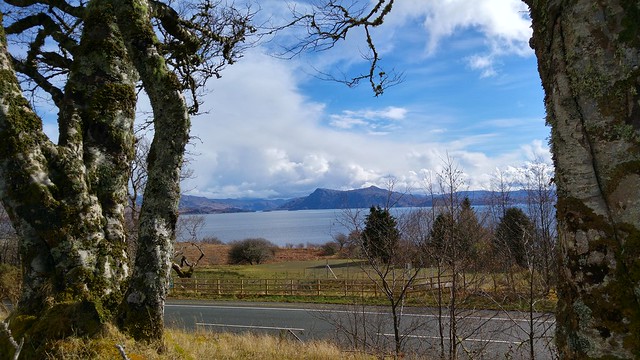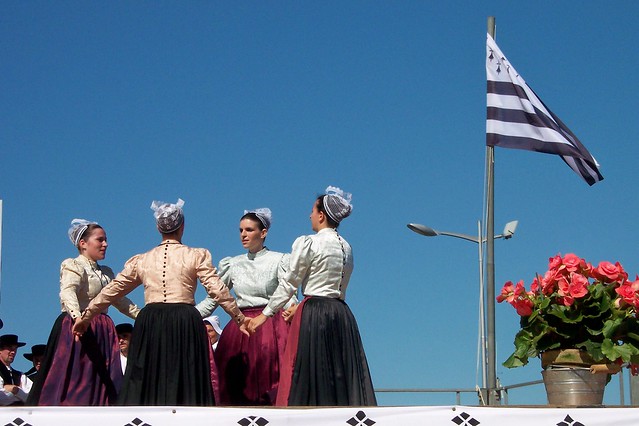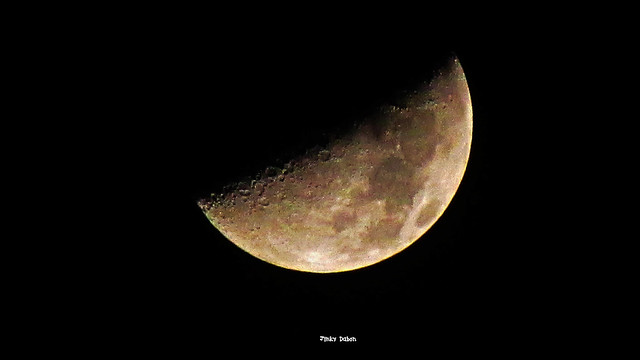Words for region, country and related things in Celtic languages.
Words marked with a * are reconstructions.
| Proto-Celtic | *mrogis = border(land), march, mark; region, country, territory, province |
|---|---|
| Gaulish | *brogis = border(land) (?) |
| Old Irish (Goídelc) | mruig [mruɣʲ] = cultivated land; march, borderland, country, territory |
| Middle Irish (Gaoidhealg) | bruig = land, cultivated land, holding, region, district, border, (farm)house, abode, hall, mansion, castle |
| Irish (Gaeilge) | brugh = dwelling, mansion brughaidh = landowner, hosteler |
| Scottish Gaelic (Gàidhlig) | brugh [bruh] = broch, fortified tower, large house, mansion, fairy mound, underground house brughadair [bru.ədɪrʲ] = broch dweller, fairy mound dweller, elf brughaire [bru.ɪrʲə] = inhabitant of a fairy mound |
| Manx (Gaelg) | brogh = broch |
| Proto-Brythonic | *broɣ [ˈbroːɣ] = country, region, territory |
| Middle Welsh (Kymraec) | bro = region, country, land |
| Welsh (Cymraeg) | bro [broː] = region, country, land, neighbourhood, native haunt; border, limit, boundary, march; vale, lowland broaidd = pleasant like a vale |
| Middle Cornish (Cernewec) | bro = country, region, land, territory, coast |
| Cornish (Kernewek) | bro = country, land |
| Middle Breton (Brezonec) | bro = country, nation, region broa = to return to the country broad = inhabitants, compatriots broadel = national Bro-C’hall = France Bro-Gernev = Cornwall Bro-Saoz = England Bro-Skos = Scotland |
| Breton (Brezhoneg) | bro [broː] = counry(-side) broadadur = naturalization broadeladur = nationalisation broadelañ = to naturalize (a person) Bro-C’hall = France Bro-Saoz = England Bro-Skos = Scotland |
Etymology: from the Proto-Indo-European *morǵ- (frontier, border). Words from the same Proto-Celtic root, via Gaulish and Latin, include brolo (vegetable garden, orchard, grove) in Italian, and breuil (wood, copse, coppice) in French [source].
Words from the same PIE root include margin, mark (boundary, border, frontier) and march (a border region) in English, and marge (margin, markup) in French, margine (margin, border, edge) in Italian, and margen (margin, edge, leeway) in Spanish [source], Mark (a fortified border area, marches) in German, mark (field) in Danish, and marg (march, boundary) in Irish (via Old Norse) [source].
Sources: Wiktionary, Am Faclair Beag, Online Manx Dictionary, Teanglann.ie, eDIL – Electronic Dictionary of the Irish Language, In Dúil Bélrai English – Old Irish glossary, Geiriadur Prifysgol Cymru, Gerlyver Kernewek, Dictionaire Favereau, TermOfis, Dictionnaire de la langue gauloise, English – ProtoCeltic WordList (PDF), Etymological Dictionary Of Proto Celtic




